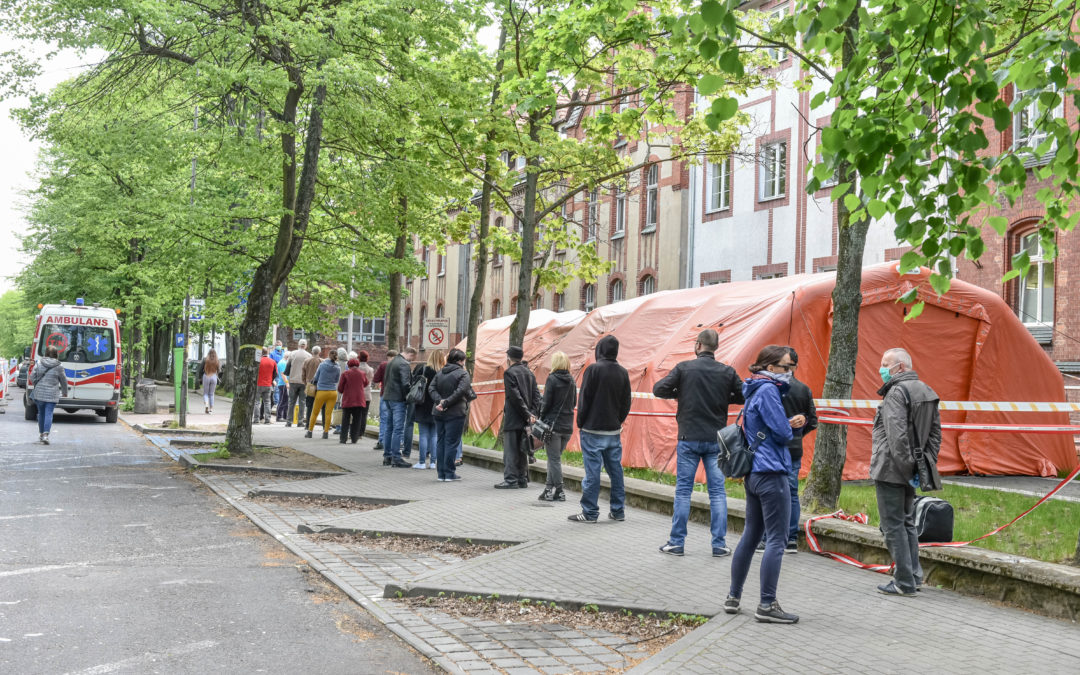“During the epidemic we had 30 patients a day, whereas earlier around 100 patients a day was the norm. Now it is 130-150 people,” said Prof. Andrzej Basiński, director of the emergency ward of the University Clinic in Gdańsk, quoted by Rzeczpospolita.
Basiński went on to say that a number of patients were simply afraid to go to the hospital during the lockdown even if they noticed alarming symptoms. “Yesterday we admitted a woman who had been having pains in her chest for two weeks. Luckily it wasn’t a stroke,” he said. A similar escalation in the number of patients has been recorded in Central Poland, where some emergency wards have run out of beds for patients, Rzeczpospolita reports.
“From the epidemiological point of view, the situation has not changed much in the last couple of weeks,” said Dr Marcin Pakulski, former head of the state National Health Fund (NFZ). “However, the information that face masks are no longer required has made people less afraid to go to see a doctor.”
Due to the pandemic restrictions, the NFZ required all contracted clinics to restrict to aminimum or temporarily suspend all planned procedures and treatment including admissions to hospitals, diagnostics, surgeries and rehabilitation. Health care centres were also advised to switch to remote diagnosis and treatment conducted by phone whenever it was possible.
Although the government has announced further unfreezing, including loosening face-covering requirements, allowing mass gatherings, reopening gyms, cinemas and theatres, the hospitals are still required to follow a strict sanitary regime, which results in restrictions on the available number of beds.
However, from the beginning of May some clinics began opening their doors. “We will be gradually admitting all planned patients,” the director of the University Hospital in Wrocław told TVN24. In order to avoid past mistakes, all clinics where planned procedures have been restored will be required to conduct a coronavirus test before admitting patients.
The “freezing” of medical care resulted in additional queues numbering thousands of patients, some waiting for vital neurological, cardiological or orthopedic treatments, TVN24 reports. According to Zbigniew Bajowski, the head of a specialist clinic in Częstochowa, the longest waiting times are for cancer patients, but at his hospital oncological surgeries are already starting to be performed.
It is likely to take the rest of the year for the waiting times to specialists and for surgeries that mounted up due to the pandemic to be reduced, TVN24 notes.
At a press conference last week, health minister Łukasz Szumowski announced that from 1 June hospitals that were dedicated to coronavirus cases will gradually begin to resume their normal duties. He added that the process will begin in the regions with the lowest numbers of infections.
Szumowski stressed that this is not a sign that the epidemic in Poland is over. “Still this is a good time to take care of patients suffering from other causes than coronavirus, as they have been waiting for so long,” he said. The minister added that the resumption us a vital step which will help to avoid the long-term impact of paralysis of the medical services in Poland.
Main image credit: Wladyslaw Czulak / Agencja Gazeta

Agnieszka Wądołowska is deputy editor-in-chief of Notes from Poland. She is a member of the European Press Prize’s preparatory committee. She was 2022 Fellow at the Entrepreneurial Journalism Creators Program at City University of New York. In 2024, she graduated from the Advanced Leadership Programme for Top Talents at the Center for Leadership. She has previously contributed to Gazeta Wyborcza, Wysokie Obcasy and Duży Format.




















